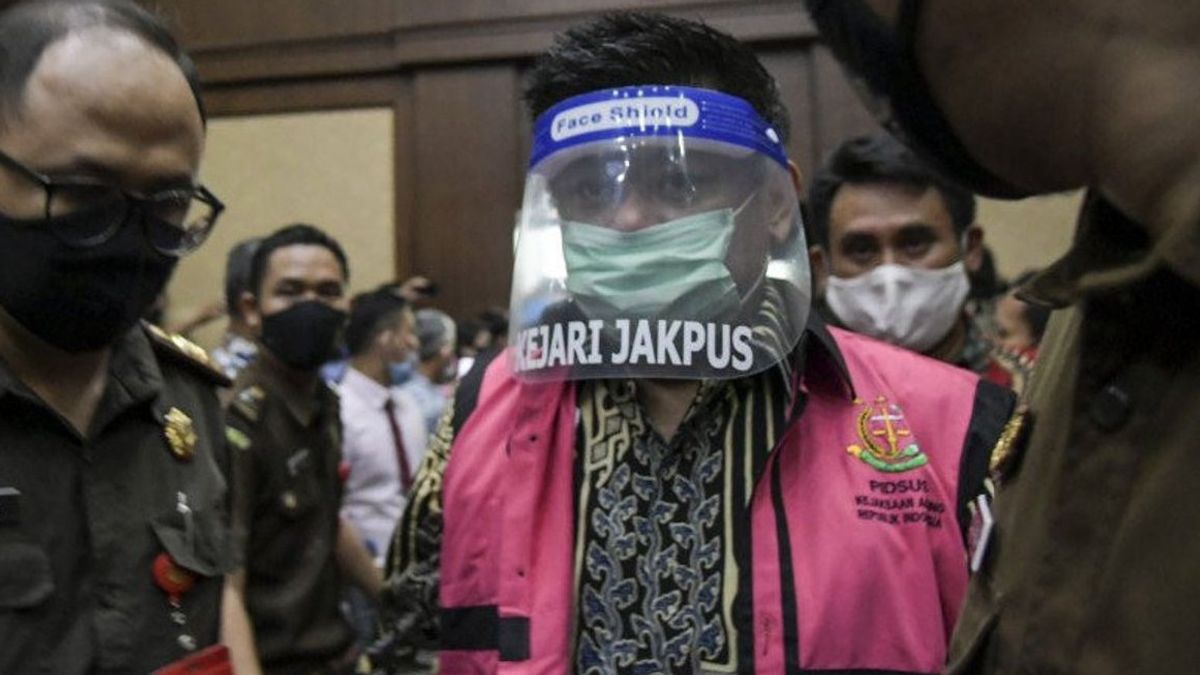JAKARTA - Criminal law expert Petrus Selestinus assessed that the panel of judges at the Corruption Court could not sentence the defendant in the corruption case to Asabri Heru Hidayat to the death penalty. The reason is because the public prosecutor (JPU) did not include it in the indictment.
"If you refer to the existing regulations, the defendant Heru Hidayat cannot be sentenced to death, and it is clear that the prosecutor's negligence in constructing the charges and charges," said Petrus to reporters, Saturday, January 15.
Petrus suspected that the prosecution's demand for the death penalty was politically charged. This is because the death penalty appears suddenly in the prosecution, without being described in the indictment as the basis for the examination and prosecution of the prosecutor.
Meanwhile, if referring to the Criminal Procedure Code (KUHAP) in Article 182 paragraph (4) which states that the Assembly of Judges as referred to in paragraph (3) must be based on an indictment letter and everything that is proven in the examination at trial.
“So, the KUHAP rule clearly states 'the indictment and everything that is proven in the examination at trial', the conjunction used is AND not OR. Therefore, the judge's decision cannot be separated from the substance of the indictment and the facts of the trial," said Petrus.
In addition, the indictment did not include Article 2 paragraph (2) of the Anti-Corruption Law which stipulates the death penalty. Moreover, the article explains that the death penalty is given if corruption is under certain conditions, namely national disasters, monetary crises and repetition of criminal acts.
On the other hand, Petrus also reminded the panel of judges to consider various things related to the verdict that would be given. The panel of judges must not bow to public pressure to justify the death penalty in violation of applicable regulations.
"Judges should not be influenced by public emotions, public pressure and populist narratives to justify the death penalty in deciding cases without heeding the laws and regulations and the facts of the trial," said Petrus. Another criminal expert who is also Professor of Criminal Law Andi Hamzah said The prosecutor's demands at trial may not exceed the indictment.
"What is being charged is based on the indictment, what is being charged," said Andi.
In addition, the panel of judges is prohibited from deciding cases outside of the indictment. Because, the indictment becomes the basis and consideration.
"The judge's decision is based on the indictment if proven," said Andi.
It is known, the Public Prosecutor of the Attorney General's Office (Kejagung) demanded the defendant in the alleged corruption case of Asabri, Heru Hidayat, with the death penalty. Prosecutors believe that Heru, together with a number of other parties, have been involved in corruption in the management of PT Asabri (Persero) funds, which caused a loss to state finances of around Rp. 22.78 trillion.
The English, Chinese, Japanese, Arabic, and French versions are automatically generated by the AI. So there may still be inaccuracies in translating, please always see Indonesian as our main language. (system supported by DigitalSiber.id)













